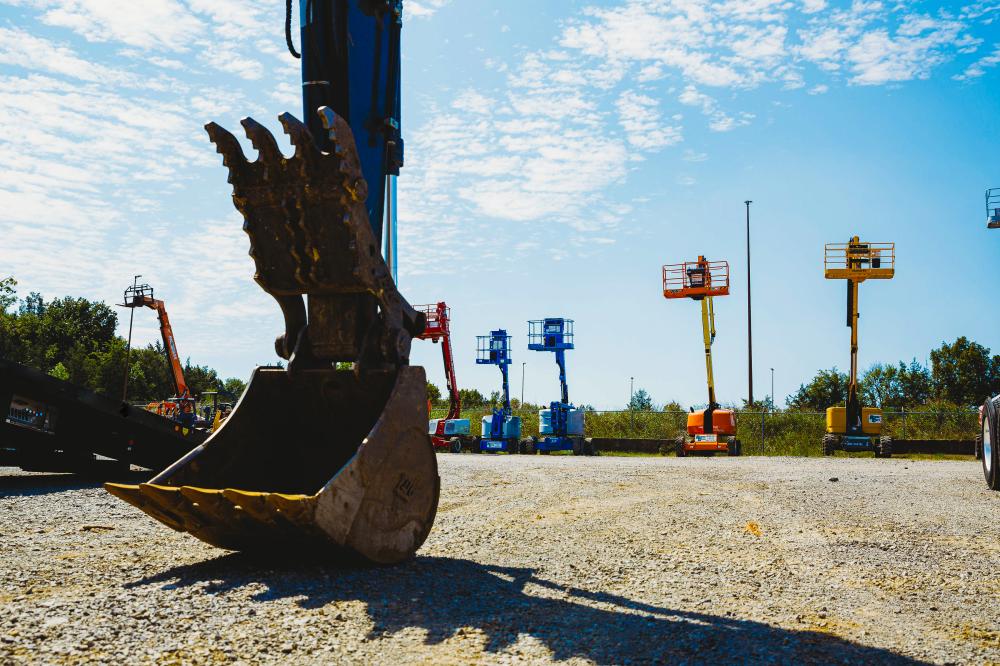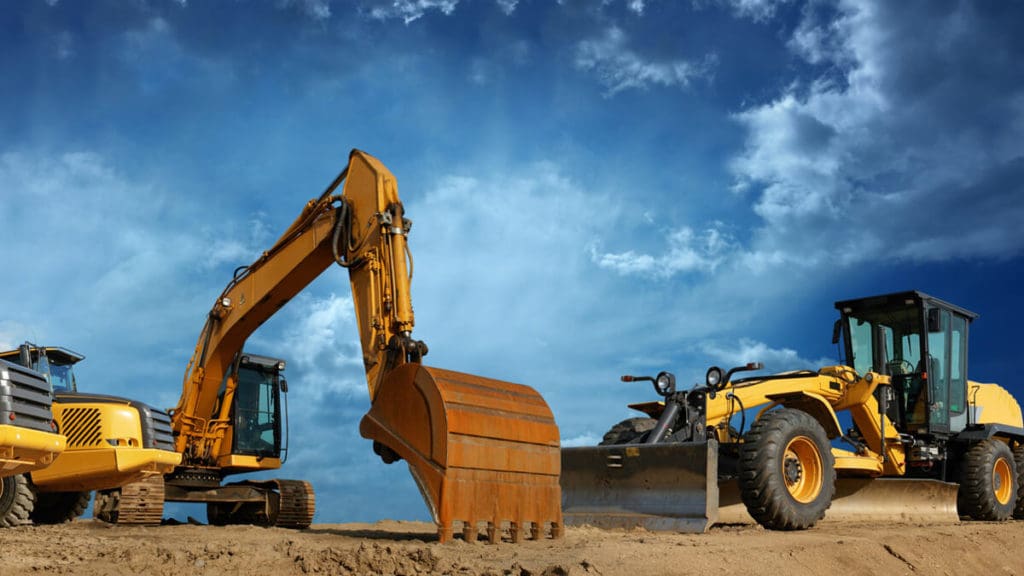Trustworthy Construction Equipment Rentals: Rent Scissor Lifts, Boom Lifts, and More from Us
Trustworthy Construction Equipment Rentals: Rent Scissor Lifts, Boom Lifts, and More from Us
Blog Article
Essential Tips for Taking Care Of Heavy Equipment Rental Contracts and Logistics Efficiently
Properly taking care of hefty equipment rental arrangements and logistics is important for the success of any task that counts on these resources. An extensive understanding of rental terms, coupled with precise assessment of devices needs, lays the foundation for desirable arrangements.
Understand Rental Terms
Understanding rental terms is crucial for successful hefty equipment administration. Knowledge with the specific terms of a rental contract can significantly affect operational effectiveness and cost-effectiveness. Key components normally consist of rental period, payment structure, and upkeep obligations. The rental period defines the duration for which the equipment is rented, affecting budgeting and project timelines. Payment structures typically differ, encompassing daily, weekly, or regular monthly prices, which demand specific calculations to prevent unexpected costs.
Furthermore, it is important to understand the upkeep responsibilities described in the contract. Commonly, rental companies maintain the devices, but understanding who is liable for regular checks and repair services is important to avoid functional interruptions. Additionally, terms might include clauses worrying responsibility for problems or theft, which can have severe monetary implications otherwise effectively understood.

Assess Equipment Requirements
Analyzing equipment needs is a critical step for any kind of project manager aiming to maximize source allowance and boost functional efficiency. This procedure involves a thorough assessment of the job demands, including specific tasks, timelines, and the kind of equipment necessary to accomplish preferred results.
Begin by determining the range of the job and the jobs that will be carried out. Think about elements such as the terrain, the scale of operations, and any potential challenges that can affect tools choice. Engaging with staff member who will certainly run the machinery can give important insights right into functional demands and choices.

Following, evaluate the capacity and capabilities of readily available devices options. It is essential to match the best tools to the tasks at hand, making certain that it can handle the anticipated workload without jeopardizing safety and security or performance.
In addition, consider the rental period and frequency of usage. Comprehending these elements can aid establish whether leasing or purchasing is the most cost-effective remedy. By carrying out an extensive assessment of devices demands, job managers can make informed choices that result in boosted efficiency and decreased functional expenses.
Negotiate Properly
As soon as the equipment needs are plainly recognized, the following step includes reliable arrangement with rental firms to safeguard beneficial terms. Begin by researching different rental firms to understand their pricing frameworks, inventory schedule, and reputation.
When approaching the arrangement table, be clear concerning your demands, including the kind of equipment, rental duration, and any extra services you may need. This openness enables rental firms to supply customized solutions that can meet your particular needs (scissor lift rental). Do not think twice to request price cuts, specifically for lasting rentals or bulk orders, as lots of firms are prepared to supply concessions to secure larger agreements
Additionally, take into consideration working out terms associated with shipment, insurance coverage, and maintenance costs. These factors can significantly influence the general cost and ought to be explicitly detailed in the rental agreement. Finally, ensure that all agreed-upon terms are recorded in creating to protect against misunderstandings and secure your rate of interests throughout the rental duration. Effective settlement not just leads to cost savings but also develops a positive connection with the rental firm.
Coordinate Transport Logistics
Coordinating transport logistics is an important facet of managing heavy devices rental agreements. Reliable transportation guarantees that devices is supplied promptly and in ideal condition, consequently decreasing downtime and boosting job efficiency. To achieve this, it is vital to establish a detailed logistics prepare that describes the whole transport procedure from pick-up to delivery.
Begin by examining the details transportation requirements based on the type and dimension of the equipment included - dozer rental. Involve with trusted transportation suppliers that focus on hefty devices to guarantee they possess the needed know-how and equipment, such as flatbed vehicles or specialized trailers. Talk about elements such as weight restrictions, course restrictions, and needed permits to stay clear of unforeseen delays
Additionally, keep open communication with both the rental business and the transport provider to coordinate routines properly. Verify all details, including pickup and drop-off times, to ensure everybody is lined up and prepared. Finally, establish backup plans to attend to any possible disturbances, such as unfavorable weather or website traffic conditions, which might impact the transport timeline. By thoroughly coordinating transportation logistics, you can promote the honesty of your rental agreement and help with smooth task execution.
Plan for Maintenance and Support

Moreover, it is essential to connect straight with the rental supplier pertaining to maintenance obligations. Some agreements might consist of upkeep as part of the rental solution, while in other cases, the obligation may fall on the occupant. Comprehending these terms will certainly assist stay clear of unanticipated prices and liabilities.
Additionally, having accessibility to technological support can be invaluable. Make certain that the rental business uses 24/7 assistance or an emergency get in touch with, enabling speedy resolution of any equipment issues. Training your group on appropriate equipment use and regular checks can dozer rental also dramatically improve functional effectiveness.
Conclusion
In final thought, efficient administration of hefty devices rental agreements and logistics hinges on an extensive understanding of rental terms, specific analysis of devices requirements, and adept arrangement skills. Emphasizing clear communication with all stakeholders remains important in navigating the complexities of equipment rental and logistics monitoring.
Efficiently taking care of heavy tools rental arrangements and logistics is critical for the success of any kind of job that relies on these sources. By thoroughly assessing and comprehending these rental terms, organizations can make enlightened choices, reduce threats, and ensure that their hefty equipment management lines up with task goals and financial restrictions.Working with transport logistics is an essential element of handling hefty tools rental agreements.In final thought, effective administration of heavy devices rental arrangements and logistics joints on a thorough understanding of rental terms, specific evaluation of devices needs, and experienced settlement skills. Highlighting clear communication with all stakeholders stays essential in navigating the complexities of equipment leasing and logistics administration.
Report this page